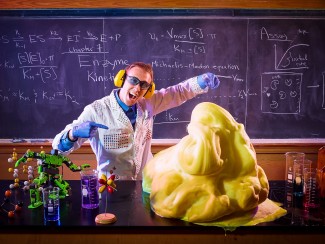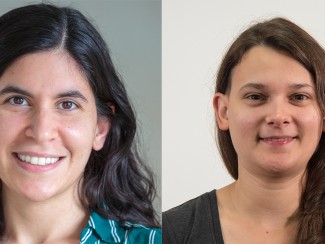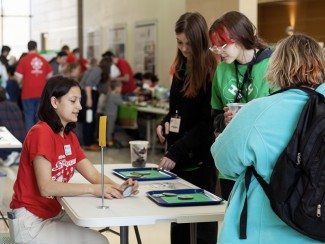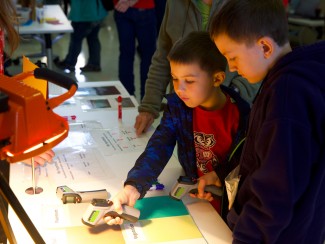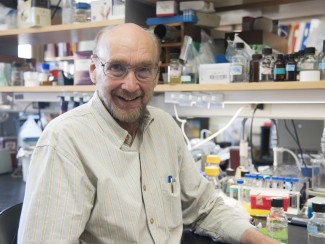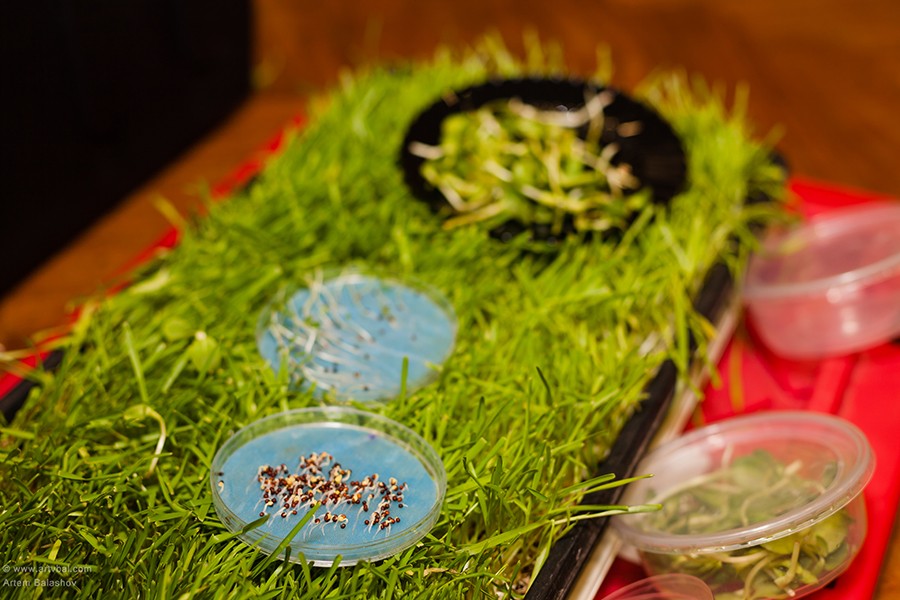
An intercollegiate team from the University of Wisconsin-Madison, Purdue University and University of Illinois at Urbana-Champaign recently won a competition to bring their urban agriculture project to Expo 2017 – known stateside as the World’s Fair – in Astana, Kazakhstan.
The winning team, including UW-Madison students Wally Graeber, Mamyrkhan Kassymov and Luke VandenLangenberg, proposed an installation of green roofs to the Green Quarter of the Expo 2017 Village. The final round of the “Expo Village 2017: Innovation in Energy Efficiency and Saving” competition was held in Washington D.C from April 11th to the 13th.
At the heart of the winning green roof proposal lies VitaCycle, the team’s solution to common problems in urban agriculture such as limited space, water needs and pathogens. VitaCycle, both self-contained and transportable, utilizes fast-growing microgreens in a modular tray setup to alleviate many of these issues. Microgreens are small versions of vegetables that mature in just one or two weeks and contain four to six times more nutrients than their larger counterparts.
“We want to have more people grow healthy, nutritious food that uses less energy and is more efficient for the world’s increasing population,” said VandenLangenberg, whose team was among the four selected to travel to D.C. for the final round of the competition.
The contest drew applications from seventeen teams out of leading North American and Canadian universities to present their projects on renewable energy, sustainability and the green economy. Judging criteria included innovation, environmental friendliness, creativity and feasibility. The UW-Madison, Purdue and University of Illinois at Urbana-Champaign group took first place, receiving $50,000 in awards to further develop VitaCycle.
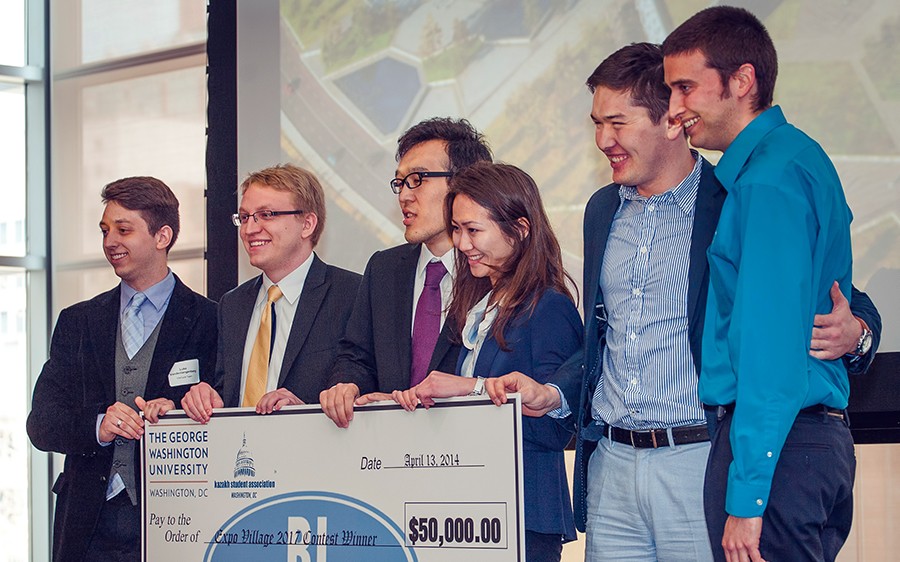
Another student team, explained VandenLangenberg, originally conceived VitaCycle for the Hult Prize, the world’s largest competition focused on solving pressing social good issues, such as food scarcity. Wally Graeber, who worked on the original conception of VitaCycle, obtained a go-ahead from former teammates to continue its development when Mamyrkhan Kassymov, UW-Madison student from Kazakhstan, suggested the Expo Village 2017 contest as a launching pad to further the project. Meeting every week at Union South, the trio cultivated their vision and sought out the expertise of Dias Zhorabekov (Purdue), Tuganai Borina (Urbana-Champaign) and UW-Madison Ph.D. student Jon Seaton to help them adapt VitaCycle to Kazakhstan’s unique economy, environment and climate.
“It was a crazy experience,” recounts VandenLangenberg. "We found out we’d advanced to the final round just four days before the competition."
In addition to winning $50,000, the first place team has the opportunity to bring VitaCycle directly to the 2017 Expo in Astana, Kazakhstan, the theme of which will be “Future Energy.” The Expo, which is intended to explore how the international community will adapt to changing energy needs, is built upon the key concepts of combating climate change, exploring energy alternatives and ensuring energy security.
Our plan is to make VitaCycle a reality.
Luke VandenLangenberg
Over one hundred and fifty years old, the World’s Fair is a prestigious exposition organized to demonstrate the ideals and innovations of our time. Previous exhibitions gave the world such distinguished landmarks as Paris’ Eiffel Tower and Seattle’s Space Needle.
"We are now taking on the challenge of implementing our system for growing greens both locally in Madison and internationally in Astana", says VandenLangenberg.
Here in Madison, VandenLangenberg is working with legal council to develop an American LLC., and exchange students Kassymov, Zhorabekov and Borina will be developing Kazakh LLC’s as they return home for the summer.
"Our plan," says VandenLangenberg, "is to make VitaCycle a reality."

